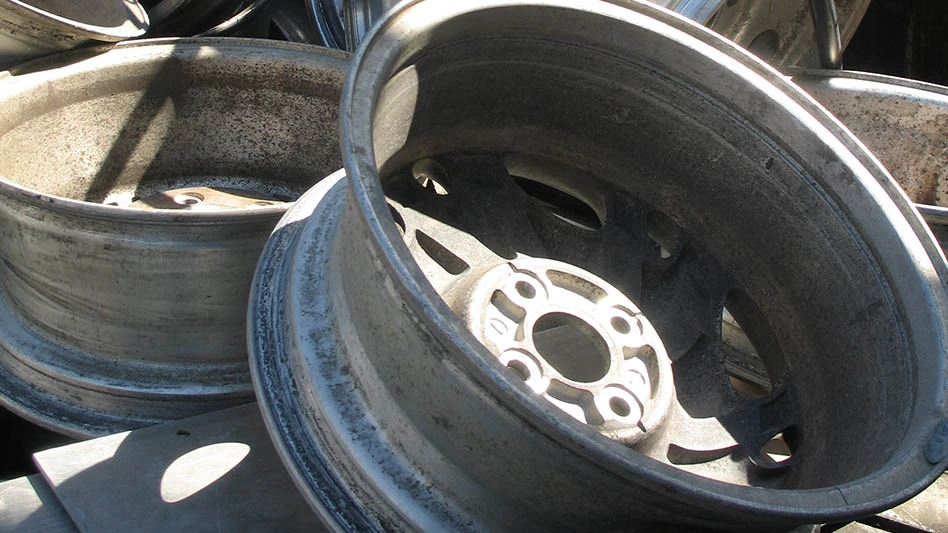You just received a registered notice from the U.S. EPA that your company is a Superfund Potential Responsible Party (PRP) for lead (Pb) disposed by a smelter. You’re still deciding how to respond to the state EPA Notice of Violation (NOV) for failing to properly treat hazardous waste you produced last year. You’re wondering how you ever got into this mess and when will the regulators pick on someone else. Your wonder turns to apprehension . . . Who to call? What to pay? Who to trust?
Welcome to the harsh world of industrial operations in the ‘90s. Without a doubt, your business deals with environmental regulation compliance on a daily basis. Like no other aspect of your operations, your environmental operations in the past, present, and future impact your profits, your civil and criminal liabilities, your future, and your health. An educated and wise decision may decrease the damage or at least keep you in business. An uneducated and hasty decision may cost you your business or worse . . . failure to comply with certain environmental regulations is punishable by imprisonment (e.g. RCRA hazardous waste management). Just like tax and civil laws, environmental laws carry severe consequences.
Knowing the Game Rules
As members of the industrialized world, we all carry the burden of complying with environmental regulations. Understanding is your first step toward avoiding conflict. The better you understand the law and the enforcement officer, the better you are prepared to respond. In addition to knowing the regulation, you must also understand the regulator . . . hold your friends close, hold your regulator closer.
There are several approaches you can take toward understanding the game rules, including retaining a licensed Professional Environmental Engineer (PE), licensed environmental attorney (JD), or a consulting firm with such individuals on staff. Another option is self-compliance, although this is not suggested. The regulations, amendments, and policies change so quickly and are so numerous that the professionals are often the only ones aware of the legal intent, regulation, and current regulatory policies.
Look carefully at your advisor’s specific education and experience in relating to your problem, as well as their professional standing, licensing and liability. You can’t afford bad advice. Only licensed professionals should be consulted with any final strategy decision, given that the PE and JD both have passed accredited exams on environmental law and policies and are sworn to uphold the law and professional standards. By following a plan drafted by a licensed advisor, the business owner has also transferred a certain amount of the future accountability and liability over to the professional under contract.
Also, be aware of the "hybrid" environmental consultant. Given the recent increase of environmental projects and demands on industry, numerous consultants from other sciences attempt to pass themselves off as environmental professionals. Although these individuals may have skills in other arenas such as biology, this doesn’t make them qualified to design, engineer or select environmental systems for industry. Hopefully, you wouldn’t go to a proctologist for brain surgery, even though he may be a licensed MD.
Finding a licensed professional who also understands the regulator and is capable of regulatory negotiation and interaction can be as important. Often the difference between a costly and an inexpensive compliance relates to the ability of your professional advisor to communicate, negotiate, and closely interact with the regulator(s) assigned to your environmental case. Your advisor should have experience with managing industrial environmental compliance, and success with negotiating and settling consent orders, NOVs, and related administrative actions. That’s not to say that an inexperienced PE/JD would fail, just that experience teaches valuable interactive skills not obtainable from textbooks. A regulator is human (although some would debate this), capable of error as well as of intellect, and is often less aware of the regulation and its impact on your operations than you or your advisor would be. Positive, honest interaction with the regulator commonly results in less cost, less fines and certainly in much less stress.
Playing the Game
Understanding and anticipating regulations prepares you for your next journey into the environmental compliance realm. How do you respond, prepare, disclose, defend, settle, finance, design, engineer, construct, operate, monitor, report . . . and survive this situation.
By comparison, understanding the law is simple. Just as with understanding environmental regulation, there are several options to prepare for and respond to regulations. These are primarily the engineer’s task. The options at this stage are seemingly infinite, and for good reason. Although often similar, no two compliance and engineered solutions are identical. The engineering of environmental controls is often complex and rarely allows a "one size fits all" solution (beware the salesman selling snake oil). Granted, there are times when environmental incidents and compliance require only simple routine approaches, such as minor spill cleanup. Yet, if you’re not confident or qualified in assessing the case, one could easily misdiagnose the problem, resulting in more severe problems due to delay of proper action. To avoid problems with improper engineering, state and federal agencies require environmental projects to be engineered and certified by a licensed PE.
The decision logic that is commonly used by the PE when dealing with environmental compliance at industrial operations, whether proactive or reactive, is as follows:
-Identify the situation, existing or incipient
-Define the operations involved in creating the situation
-Define the applicable regulations, policies and law
-Prepare options and alternatives for management review that take into consideration legal risk, violation risks, public relations impacts, operations permit risks, engineered options, compliance costs and schedules
-Finance the elected project or response
-Define and obtain the required permits for the response action
-Complete engineering, construction, and procurement
-Train operations personnel on retrofits and/or new systems
-Monitor compliance and report on an ongoing basis to management and regulators
-Optimize operations given specific hands-on experience.
Many companies use a team consisting of management, engineering, accounting, legal, and operations personnel to work through the decision process. All state/federal environmental engineering projects must be stamped by a licensed environmental engineer to protect the public from improper designs relative to water supply, wastewater treatment, air quality control, waste disposal, groundwater resources management, water body controls, flood management, etc. Most permitting under RCRA/NPDES/Clean Air Act also requires PE certification.
The Licensed PE
As a reference point, the licensed professional environmental engineer must first graduate from an accredited engineering school.
Next comes the eight-hour Engineer-In-Training (EIT) exam. After the EIT, the PE candidate msut practice under a licesned PE "mentor" for five years followed by a 12-hour state-by-state PE exam.
Upon passing the exam, taking the PE oath, and being subject to PE board review, one can practice engineering in the subject state examined. The PE must demonstrate competence in the following fields:
-Engineering skills (physics, chemistry, mathematics, planning)
-Environmental law and regulation, institutions, and policies
-Air pollution control
-Water and wastewater treatment and processes and operations
-Water supply systems
-Water quality management
-Solid and hazardous waste management
-Engineering methods
-Drafting and computer skills
-Technical and business writing
-Environmental epidemiology and toxicology
-Core civil engineering (structures, hydraulics, thermodynamics).
Winning the Game
With proper planning and awareness of incipient environmental issues, you can avoid the reactive environmental response of consent orders, NOVs and bad press.
Whether responding to a situation or proactively engineering with compliance in mind, prepare yourself financially and mentally, consider all your options, invest in professional advice, and embrace the selected approach as an integral component of your business—you will be living with it for a long time.
(The author is a Professional Environ-mental Engineer and president of Forrester Environmental Services Inc., Hampton, N.H.)

Explore the October 1998 Issue
Check out more from this issue and find your next story to read.
Latest from Recycling Today
- New recycling grant program launches in Massachusetts
- Tire Recycling Foundation names executive director
- Dock 7 named 2025 Exporter of the Year at New Jersey International Trade Awards
- Waste Connections reports ‘better than expected’ Q1 results
- Commentary: How EPR is transforming the packaging industry
- Acerinox names new North American Stainless CEO
- Greenwave closes 2024 books with red ink
- Steel Dynamics nets $217M on record shipments





